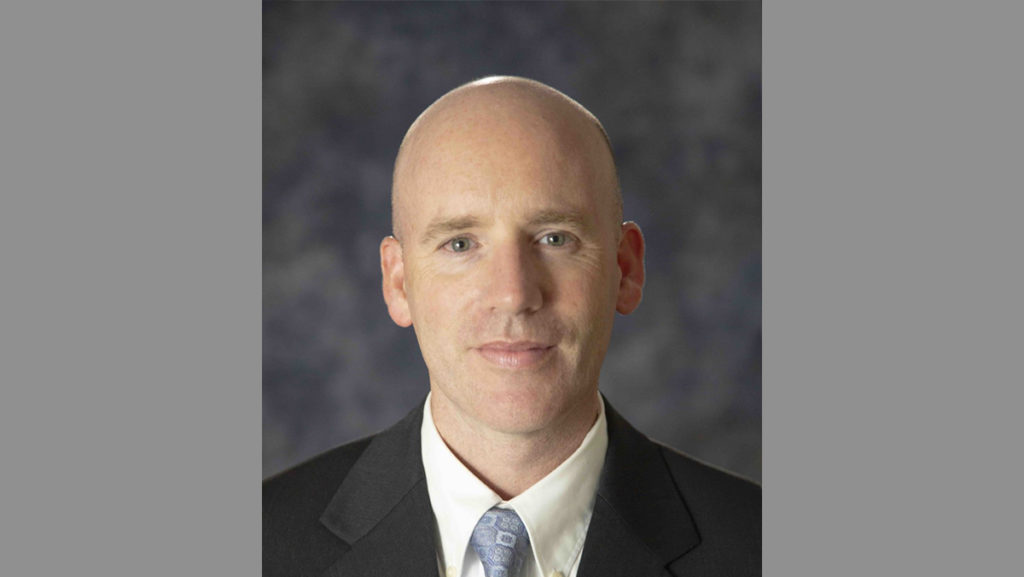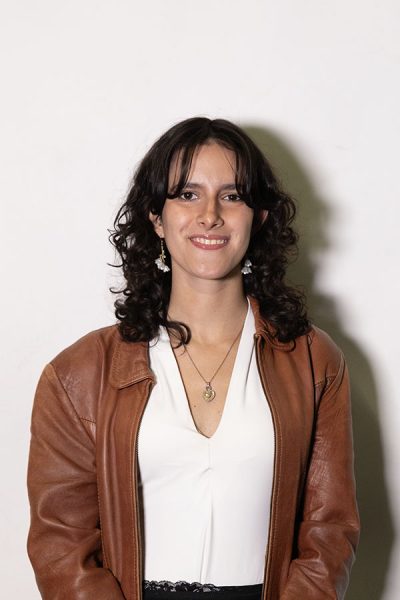In 1993, Loki Mulholland ’23 took a job offer as an English teacher in Dubna, Russia, after studying at Moscow State University during the summer. Originally having signed up to miss only Fall 1993 thanks to this offer, life took an unexpected turn when Mulholland’s Russian visa expired and, despite having an extension, he was not allowed on his flight back home to the United States.
Mulholland is an Emmy award-winning filmmaker, activist, author and now, officially after over 30 years, an Ithaca College alum. He has worked on several films concerning issues of race and social justice, wrote a book and speaks at events all over the country to spread awareness of these issues as a member of the Omega Psi Phi Fraternity, Inc. Yet, even as he continued with his successful career, he said he was always haunted by the thought that he had not gotten his degree at Ithaca College.
“Long story short is I didn’t get home for Christmas and I finally got home before the Super Bowl, but it was too late to start that spring semester,” Mulholland said. “After that, you know, life happened … I got married and … finally got a business degree at University of Phoenix just because I’m like, you know what? I should get a degree … more for my kids than anything else.”
While this sounds like an extremely unique experience, Bryan Roberts, associate dean of the Roy H. Park School of Communications, said he has found quite a number of similar cases where students earn credits in the major courses and then leave.
“So [he] never got a degree, but in a way, [he] finished the hardest part of the degree,” Roberts said.
The Education Data Initiative analyzed college graduation and enrollment statistics across the country from 2021 to find that only 30% of dropouts re-enroll and get their degree. Additionally, the EDI also reports that the college dropout rate in New York is lower than the national average despite there being twice as many college dropouts than undergraduates.
“We didn’t do it for him — like it wasn’t any special treatment or anything like that,” Roberts said. “I started looking at the transcript and sure enough, when he was here, he did everything that was hard.”
Mulholland was invited back to campus Sept. 28 to talk about his work. While chatting with Amy Falkner, dean of the Park School, and Roberts, he clarified how he had never gotten his diploma at Ithaca College and Falkner and Roberts helped him finally close this chapter, transferring the missing credits from different courses he had taken elsewhere and using his many works, including his documentary “The Uncomfortable Truth” (2017) as a senior film project.
“I’ve been in academia for 25 years, so I have seen a number of [cases like this],” Falkner said. “Maybe it’s our field of communication … so as you progress in your career … you’ll be something and you’ll be in class. Hopefully, that probably goes out and about and does some great groundbreaking story or coverage. … Let’s say you get an internship and then your employer says, ‘You’re so great, you don’t need to graduate.’ Why don’t you start right now? and this is what happens, right?”
Another of his best-known works, “An Ordinary Hero: The True Story of Joan Trumpauer Mulholland” (2013), turned up as an unanticipated opportunity after he was offered to do the story for the 50th anniversary of the Freedom Rides in 2011. He said he knew he had to pursue this story, following his own mother’s advice, Mulholland knew he could not do everything but doing nothing was not an option.
“If I didn’t do the story, how dumb would that be?” Mulholland said. “Because here you have this incredible story right in front of you and you don’t even take the opportunity to share? … I use film and the ability to tell stories and so forth like to do my part, to make a difference.”
Nonetheless, Mulholland expanded his activism beyond just films when he started the Joan Trumpauer Mulholland foundation in 2014. Based on the goal of sharing his mother’s stories with others and educating others on the Civil Rights Movement and anti-racism with the use of media that supply the right tools to reevaluate preconceived ideas.
“I think too often we take a look at activism as … like, something my mom has done and others ... or that it’s like this is my identity … of who I am and what I do and it’s every day I’m out there, in the streets or, you know, doing whatever and that’s … not really activism,” Mulholland said. “Why would you segregate people into different pools based on your perception of what it means to be involved? … That’s literally the definition of an activist because you are activating and you are engaging.”
Recently, Mulholland has worked on a short film about a 92-year-old man that goes to the Edmund Pettus Bridge in Selma, Alabama, every day. Mulholland has also expanded his platforms to reach a bigger audience and can be found in all social media, like on TikTok where he currently has 227.1K followers, engaging actively with the community.
“The greatest opportunity we have is in the four walls of our home and that’s where we’re gonna make the biggest impact in our world and so it’s how you are informing … the people that you live with.”















